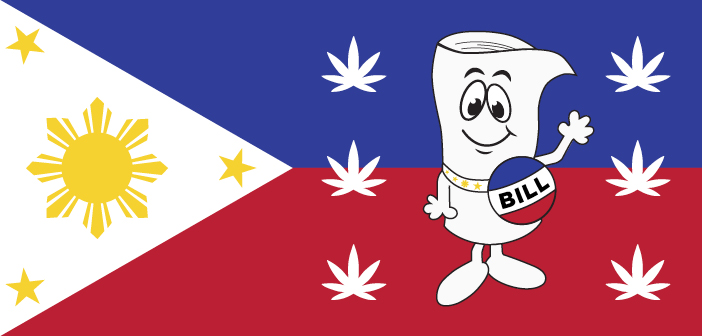The time is now to advance medical cannabis in the Philippines, said a policy advisor to Congressman Rodolfo T. Albano, who authored recent legislation.
On Sept. 25, the Philippines Parliamentary House Committee approved a medical cannabis bill and pushed it forward in the political process. This move is an incredible achievement for a nation currently gripped in a bloody drug war endorsed by President Rodrigo Duterte.
Any medical marijuana legalization in the Philippines would foster one of the starkest contrasts in drug policy seen today, where medical patients would be permitted to ingest cannabis while recreational users are targeted in government-approved extrajudicial killings.
To get the latest on the bill and its move through the governmental process, Marijuana.com interviewed Socorro L. Reyes, Ph.D, the senior policy advisor for Congressman Albano.
(Marijuana.com) What was the catalyst for the medical cannabis legislation currently being considered in Parliament?
(Socorro L. Reyes) Congressman Albano was approached by Moms for Marijuana Philippines, now known as the Philippine Cannabis Compassion Society (PCCS), to ask if he can introduce a bill legalizing the medical use of marijuana. PCCS is an organization of patients and their parents suffering from epilepsy, MS, cancer, etc. looking for alternative medicine to treat their illness.
I [traveled to] California and visited several cannabis advocacy and research groups [as well as] pharmacies to learn about their experience. I also reviewed several medical cannabis laws in different states and conducted a policy forum with various sectors in the Philippines.
[We then] consulted medical practitioners, law enforcement, human rights groups, patients, academics, researchers, and lawyers. Based on this, I drafted the bill which was introduced by Congressman Albano in May 2014 and became known as House Bill 4477 or the Philippine Compassionate Medical Cannabis Act in the 16th Congress (2013-2016).
It was referred to the House Committee on Health. It did not pass and was subsequently reintroduced as HB 180 in the 17th Congress in July 2016.
Where is this bill in the Parliamentary process?
In the 17th Congress, the House Committee on Health conducted a hearing on the bill and referred it to the Technical Working Group where further deliberation was done resulting in the passage of a substitute bill [named] House Bill 6517.
The bill will go through Second Reading when Congress resumes on Nov. 14. If it is approved, it will go through Third Reading and a final vote three days after. It will then be transmitted to the Senate where it will go through the same legislative mill.
In your opinion, what are the chances this bill will be adopted into law?
There is a very good chance the bill will pass in the 292-member House of Representatives. We have close to a hundred co-authors. But our Congress is bicameral and the 24-member Senate is the problem.
There is very strong opposition from Sen. Vicente Sotto, the Senate Majority Floor Leader and principal author of the Dangerous Drugs Act which classifies marijuana as a prohibited drug under Schedule 1. We’re working on him though, and so with the other Senators. PCCS advocates are strongly lobbying.
President Duterte has gone on record saying he is in favor of medical cannabis. If the bill gets all the way to his desk, do you believe he will sign it into law considering his stance against drugs?
President Duterte supports the use of marijuana strictly for medical purposes. And so does the Speaker of the House of Representatives.
If medical marijuana becomes legal, how will that affect the extrajudicial killings that have been happening in the country? Will medical marijuana patients be mistaken for drug users and targeted with violence?
The bill has a very strict regulatory framework. The Department of Health and the Philippine Drug Enforcement Agency issue ID cards for patients and regulate medical cannabis compassionate centers as well as medical cannabis research and safety compliance centers.
Do you believe now is the appropriate time for the Philippines to have medical cannabis?
Yes, it is. We have been advocating for the bill since 2014 and the advocacy by patients has intensified. And we have a supportive government leadership.
credit:marijuana.com




